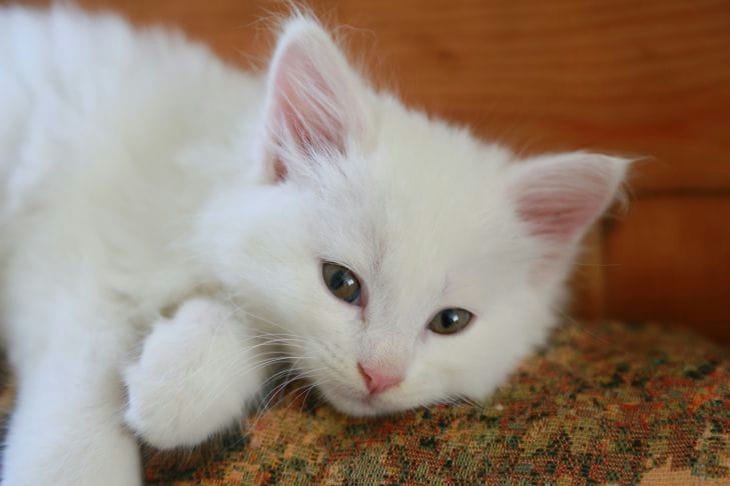Many cat owners notice that their furry pets make funny sounds while sleeping.
Sometimes it is a quiet snore, and sometimes it is a real snore, capable of rivaling that of a human.
But is snoring in cats normal, or is it a reason to see a vet? Let's find out.

Causes of Cat Snoring
Just like in humans, snoring in cats is caused by vibrations of soft tissue in the airways. This can happen for a variety of reasons:
Anatomical features: Brachycephalic cat breeds, such as Persians and Exotic Shorthairs, have shortened muzzles and narrow nasal passages. This predisposes them to snoring.
Excess weight. Extra pounds are deposited not only on the sides, but also in the neck area, squeezing the airways and making it difficult for air to pass through.
Age: As you age, the muscles of the larynx and soft palate lose tone, which can also cause snoring.
Sleeping position. Sometimes a cat may snore if it sleeps in an uncomfortable position, such as on its back, where the tongue falls back and partially blocks the airway.
Allergies: An allergic reaction can cause swelling of the mucous membranes of the nose and throat, leading to difficulty breathing and snoring.
Infections: Viral or bacterial infections of the respiratory tract, such as rhinitis or sinusitis, can also cause snoring.
Foreign objects: Sometimes foreign objects, such as blades of grass or small toys, can get into your cat's nasal passages, causing difficulty breathing and snoring.
Neoplasms. In rare cases, snoring may be caused by polyps or tumors in the nasopharynx.
When to worry
In most cases, snoring in cats does not pose a serious health threat. However, if you notice that the snoring has become louder, more frequent, or is accompanied by other symptoms such as coughing, sneezing, nasal discharge, or difficulty breathing, you should contact your veterinarian.
It is also worth paying attention to the general condition of the cat. If it is lethargic, refuses to eat, or has a change in behavior, this may indicate a serious illness that requires treatment.
What can the owner do?
If your cat snores but seems fine, you can try the following tips:
- Provide comfortable sleeping conditions. Make sure your cat has a comfortable place to sleep where it won't be disturbed.
- Monitor your pet's weight. Excess weight is one of the main causes of snoring, so it is important to provide your cat with a balanced diet and sufficient physical activity.
- Use a humidifier. Dry air can irritate the mucous membranes of the airways, so a humidifier can help reduce snoring.
- Visit your vet regularly. Preventive examinations will help identify diseases at an early stage and prevent complications.
Remember that your pet's health is in your hands. Be attentive to its condition and do not ignore alarming symptoms.
Earlier we reported on the launch of vaccination of wild animals against rabies .








